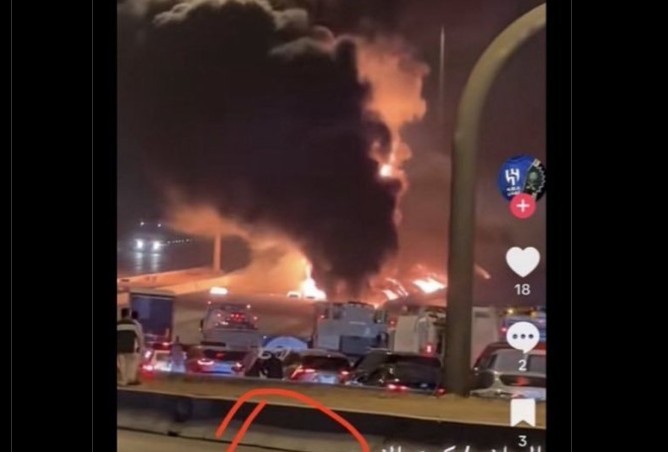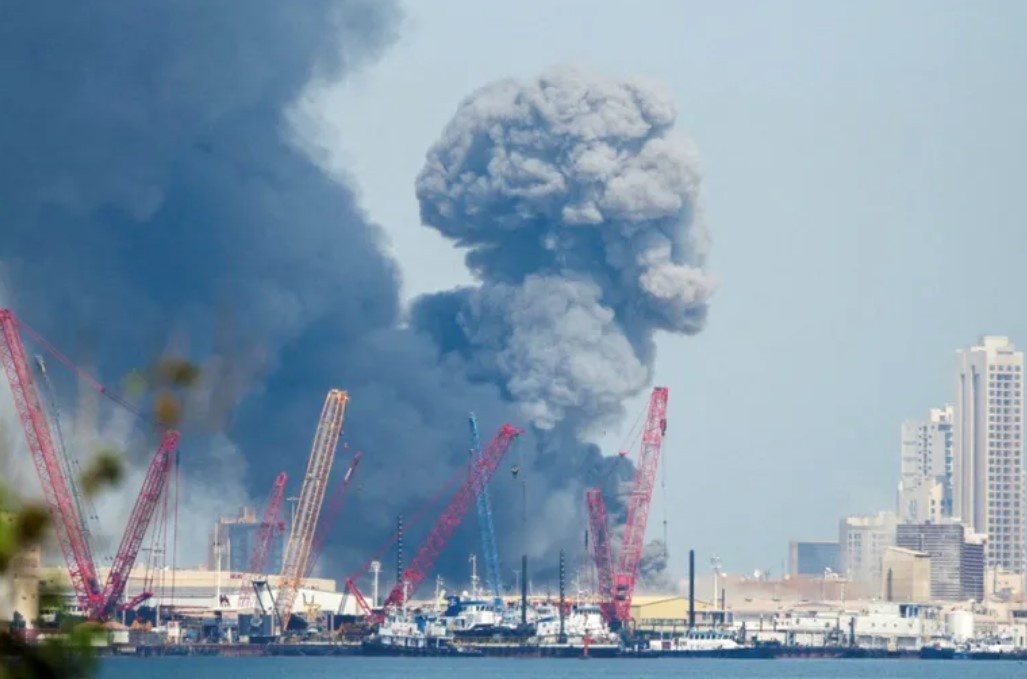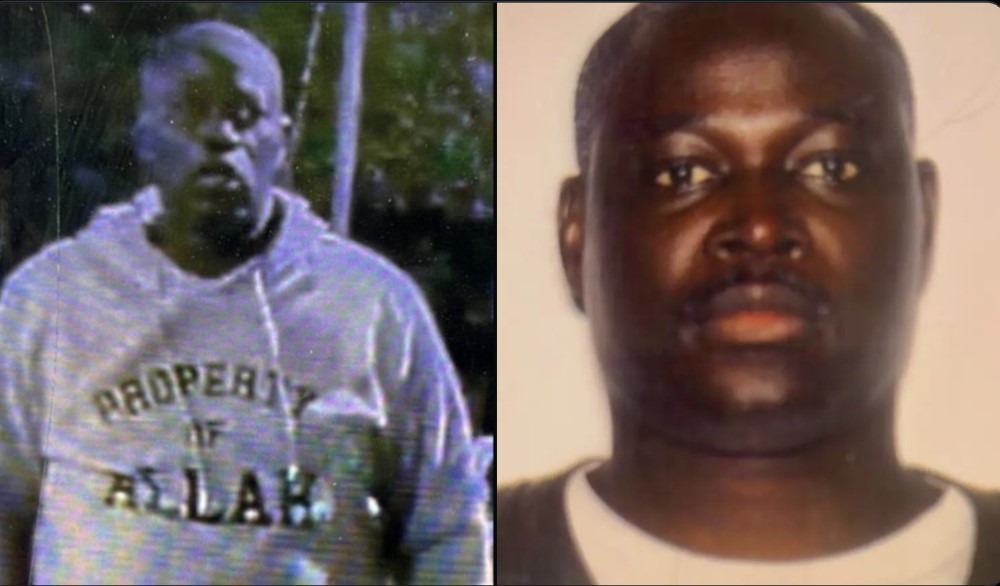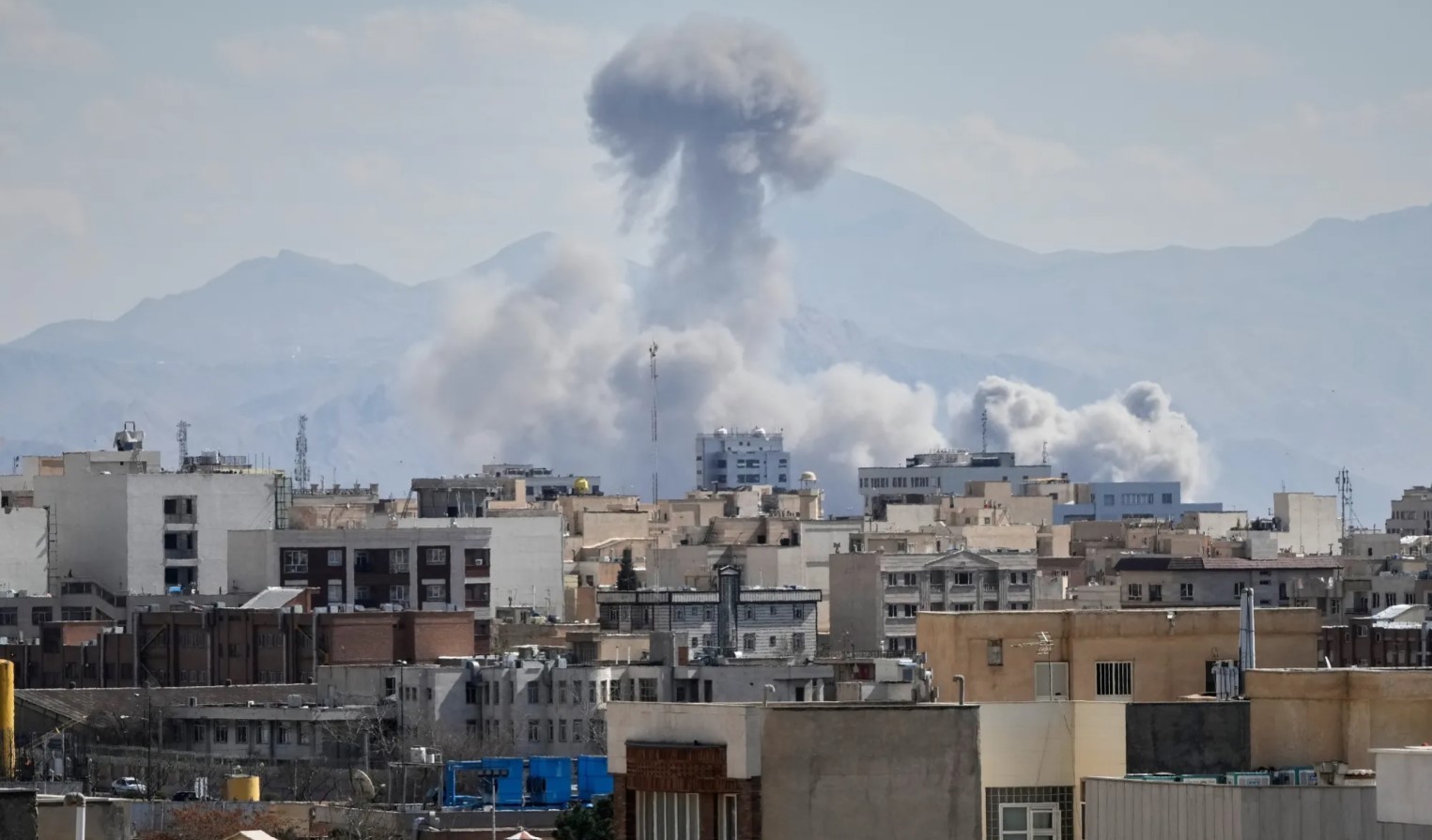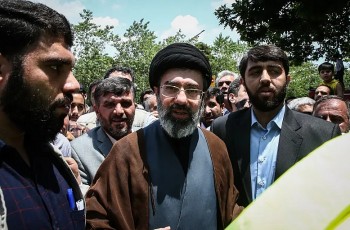America in Crisis and Flux: Top U.S. News – August 28, 2025
 Who Was Robin Westman? Inside the Mind of the Minneapolis Mass Shooter Who Was Robin Westman? Inside the Mind of the Minneapolis Mass Shooter “Who Is Robin Westman? The Minneapolis Mass Shooter at Annunciation Catholic School — Full Profile, Motive, and Investigation. |
August 28, 2025, stands out as a day of reckoning across multiple fronts: health leadership collapses, strategic allies reevaluate deals, and Americans confront the costs of domestic instability.
Below are the top 10 stories driving headlines today — expanded, analyzed, and explained.
1. CDC Meltdown: Leadership Crisis Rocks Public Health Sector
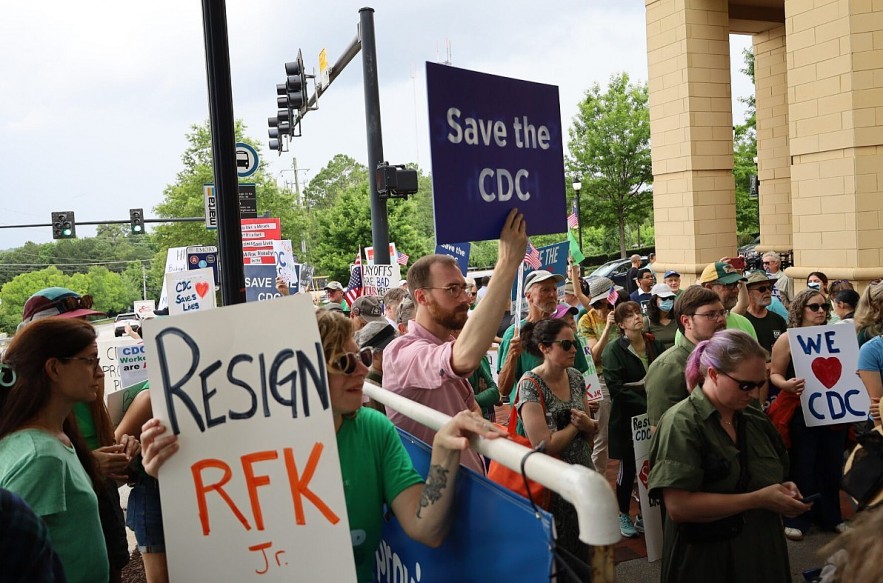 |
| Supporters of the CDC participate in a rally outside the center in Atlanta |
In a move sending shockwaves through the medical and scientific community, three of the CDC’s most senior officials tendered their resignations today. Dr. Susan Monarez, who had only recently been appointed as CDC Director, was unceremoniously removed by Health and Human Services Secretary Robert F. Kennedy Jr. over disagreements related to vaccine mandates and public messaging.
Monarez's dismissal is just the tip of the iceberg. Dr. Debra Houry, a 20-year CDC veteran, along with Dr. Daniel Jernigan and Dr. Demetre Daskalakis — both respected leaders in infectious disease and public health equity — walked out in protest, citing the agency’s growing politicization.
Critics argue this shift marks the end of CDC independence and threatens science-based decision-making. Meanwhile, Kennedy has insisted the shakeup is necessary to restore “transparency and trust” in federal health messaging. But with a winter COVID/RSV/flu season looming, many fear public confusion and distrust could lead to a repeat of early-pandemic mistakes.
2. Trump Federalizes Union Station in Symbolic Expansion of Power
In an unprecedented move, the Trump administration has taken direct control over Union Station in Washington, D.C. — a landmark transportation hub historically operated by Amtrak. The justification? "Urban revitalization," according to the administration.
But this action is widely seen as symbolic of the President’s growing tendency to assert federal authority over local infrastructure. This week alone, more than 900 National Guard troops were deployed across D.C., and over 1,000 arrests were made in connection with expanded "law-and-order" enforcement.
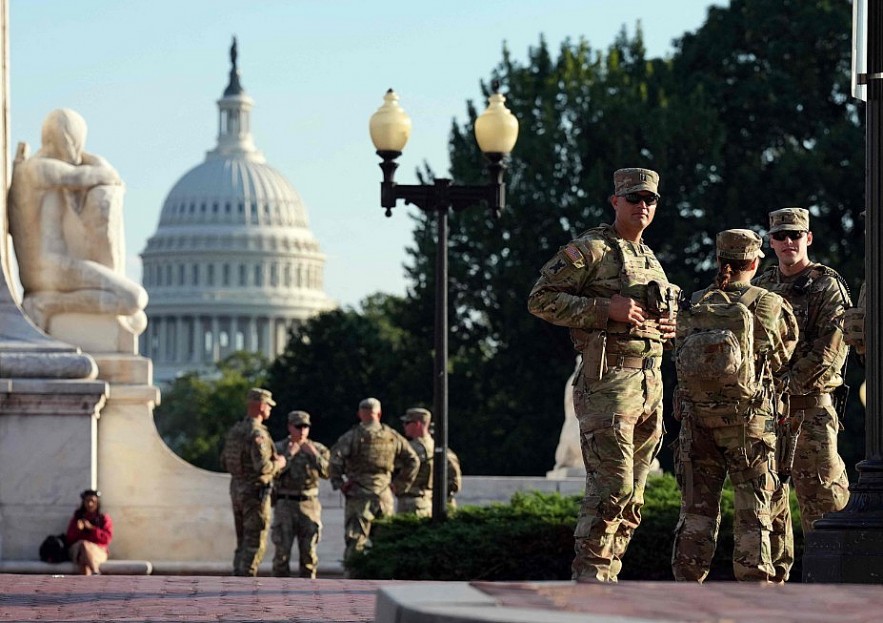 |
| Federal power in Washington and Trump’s move |
Civil rights groups are calling foul, describing the deployment as a thinly veiled federal occupation. Local leaders, including D.C. Mayor Muriel Bowser, have acknowledged the drop in crime but expressed grave concern over the loss of municipal autonomy.
The incident raises broader questions about federalism, states’ rights, and the future of localized governance under a second Trump administration.
3. Japan Freezes $550 Billion Investment Deal With U.S. Over Tariff Tensions
A massive economic opportunity between Japan and the United States is now on ice. Tokyo abruptly canceled a high-level visit by its chief trade negotiator, Ryosei Akazawa, following escalating disagreements over tariff adjustments.
At the heart of the dispute is a proposed $550 billion Japanese investment into U.S. manufacturing and infrastructure, which Japan conditioned on significant U.S. tariff cuts — especially on Japanese automotive imports.
The Trump administration, however, is reluctant to reduce the 27.5% import tax, citing the need to protect American manufacturing. A revised executive order intended to streamline trade was not approved in time, and Japanese officials now worry about entering an unstable or non-binding agreement.
This delay sends a chilling message to other global partners, reinforcing perceptions that U.S. trade policy under Trump is unpredictable and often ideologically driven rather than economically pragmatic.
4. Catholic School Shooting Investigated as Terrorism in Minneapolis
Minneapolis is mourning after a horrific mass shooting at Annunciation Catholic School that left two children dead and 17 others wounded. The shooter, a 23-year-old male reportedly harboring anti-Catholic views, entered the school during a morning mass and opened fire indiscriminately before turning the weapon on himself.
Authorities quickly labeled the incident as potential domestic terrorism, citing a recovered manifesto filled with anti-religious rhetoric and warnings of a “crusade” against organized religion. The attack comes amid rising incidents of politically and religiously motivated violence across the country.
President Trump condemned the attack, while critics point to ongoing inaction on gun control. Lawmakers on both sides of the aisle expressed grief — but little common ground on solutions.
5. FEMA Purges Staff Over Dissent, While Fed Governor Cook Fights Back
Federal Emergency Management Agency (FEMA) officials who co-signed an open letter critical of the agency’s political interference have been placed on leave, in what whistleblower groups call retaliation for protected speech.
Simultaneously, Federal Reserve Governor Lisa Cook is battling the Trump administration in court after being dismissed over alleged mortgage fraud — a charge she firmly denies. Economists warn that Cook’s removal is part of a broader attempt to reshape the Fed into a more ideologically compliant institution.
The dual crackdowns suggest an increasing intolerance for dissent within federal agencies, igniting fears of a chilling effect on career public servants and non-partisan oversight.
6. U.S.–India Relations Strained by 50% Tariff Surge
In a sharp escalation of trade tensions, the U.S. slapped a 50% tariff on select Indian goods, prompting outrage in both New Delhi and Washington. Indian officials called the move “hostile” and are reportedly considering retaliatory measures.
Democrats on the House Foreign Affairs Committee said the tariffs risk unraveling decades of partnership and may drive India closer to alternative blocs like BRICS. The administration counters that India has failed to meet certain fair trade standards and that the tariffs are a corrective measure, not a punishment.
The fallout could have serious consequences, especially in tech, pharmaceuticals, and defense — sectors heavily reliant on Indo-U.S. cooperation.
7. Greenland Tensions Spike as Denmark Summons U.S. Ambassador
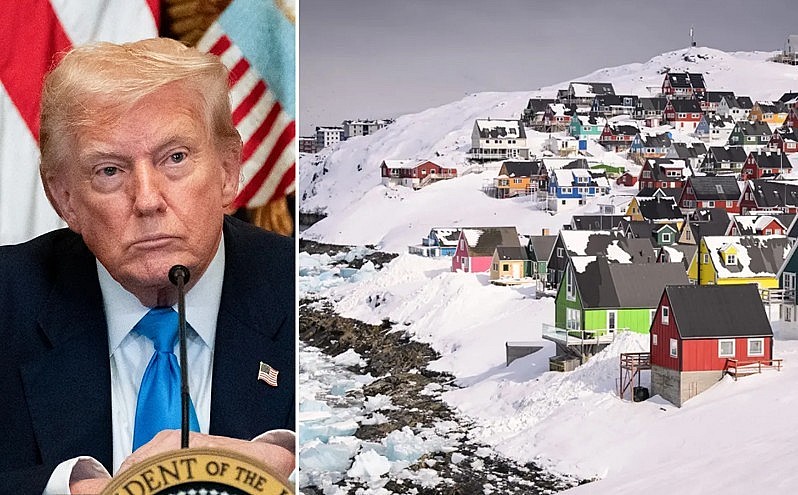 |
| Denmark's foreign minister summoned the top U.S. diplomat in the country over reports of covert American influence operations in Greenland |
Diplomatic lines lit up this morning as Denmark formally summoned the U.S. ambassador over “interference” by Trump allies in Greenland’s political affairs.
Sources say individuals linked to the Trump campaign have been meeting with Greenlandic leaders to explore avenues for greater autonomy from Denmark — raising alarms that the U.S. could be seeking long-term strategic control of the island.
Though the U.S. State Department distanced itself from these backchannel efforts, Denmark isn’t buying it. This controversy resurrects memories of Trump’s failed 2019 bid to "buy" Greenland — and could lead to a diplomatic freeze with one of America’s NATO partners.
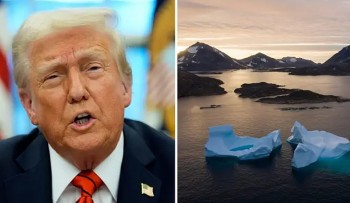 From Greenland to ‘Red, White, and Blueland’ – America’s Wildest Land Grab Yet? From Greenland to ‘Red, White, and Blueland’ – America’s Wildest Land Grab Yet? |
8. FDA Approves Pfizer Booster, But Access Gets Narrower
The FDA has approved a new version of the Pfizer COVID-19 booster designed to target the most recent Omicron subvariants. However, in a controversial decision, the booster will only be available to high-risk populations — including the elderly, immunocompromised, and frontline workers.
Public health officials argue the limited access is due to supply constraints and shifting vaccine priorities, but critics say it's a step backward in pandemic preparedness. The move follows the shake-up at the CDC and leaves Americans wondering whether public health policy is now being driven more by politics than science.
9. “Two-State California” Proposal Highlights GOP Divide
A group of California Republicans is pushing a symbolic resolution calling for the state to be split into two entities — a reaction to recent redistricting disputes and perceived liberal dominance in state politics.
The “two-Californias” proposal is unlikely to go anywhere legislatively, but it captures the cultural and political rift within the state and mirrors national divides between urban and rural voters. Supporters claim it’s about representation. Critics call it political theater.
What’s clear is that the partisan fault lines in America’s most populous state are deeper than ever.
10. D.C. Mayor Warns of “Break in Trust” as Federal Agents Flood Streets
Mayor Muriel Bowser is sounding the alarm over the Trump administration’s ongoing law enforcement surge in Washington, D.C. Though acknowledging a dip in violent crime, Bowser voiced concerns over the presence of masked federal agents, particularly those from Immigration and Customs Enforcement (ICE), patrolling neighborhoods without local coordination.
Residents have reported increased fear and confusion, and community leaders warn the deployment risks alienating the very communities law enforcement is supposed to protect.
The incident raises fundamental questions about policing in the Trump era: Who sets the rules — local governments or federal power?
Conclusion: America on Edge
August 28, 2025, is a snapshot of a nation on edge. From within its own agencies to its global alliances, the United States is confronting a period of intense volatility. Public trust is eroding, diplomatic norms are being rewritten, and domestic policies are increasingly polarized.
In this moment of national stress, every decision — from who runs the CDC to how Union Station is governed — carries consequences that could reshape the American experiment for generations.


